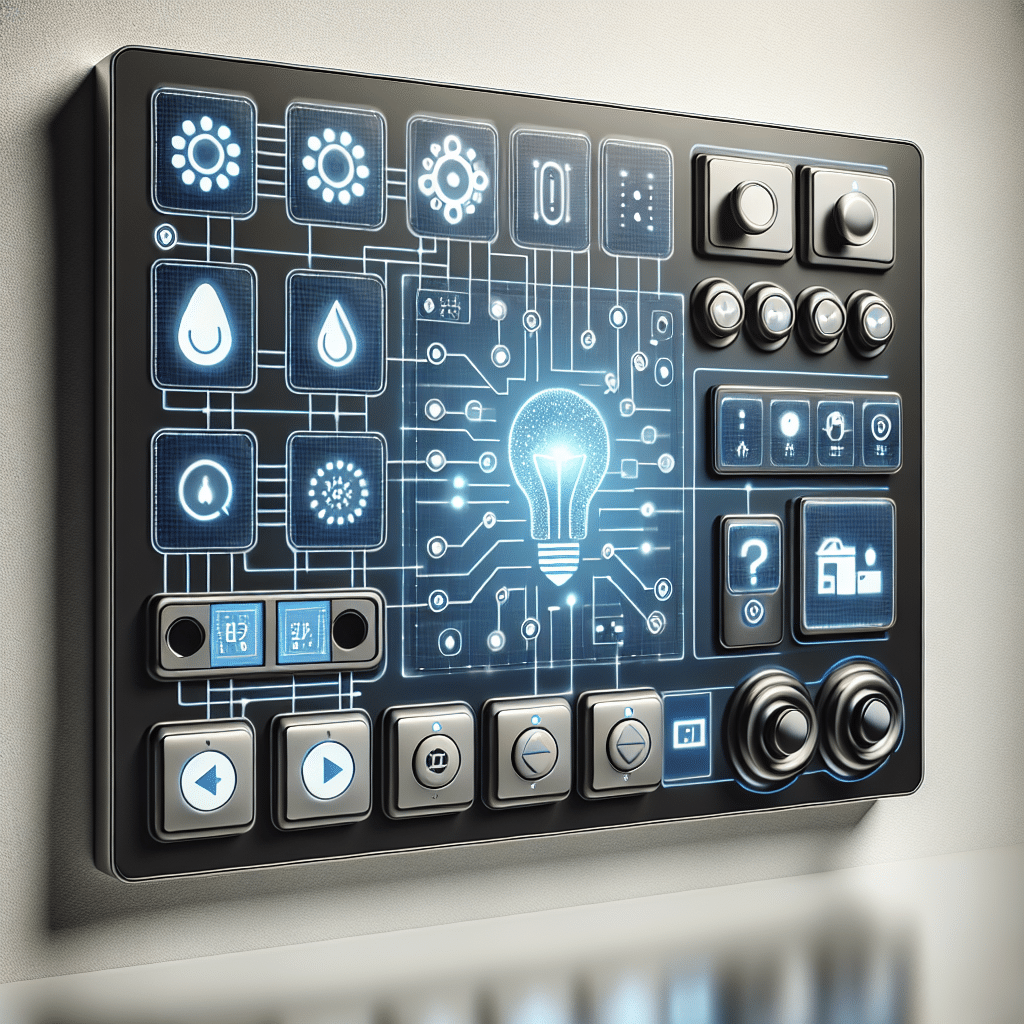Smart Hub Solutions for Controlling Lights and Appliances
In the modern home, smart hub solutions have emerged as the cornerstone of smart living. These advanced systems allow users to control lights and appliances with ease, promoting energy efficiency, convenience, and enhanced security. Below, we explore the various aspects and benefits of smart hub technology, suitable for both homeowners and renters.
What is a Smart Hub?
A smart hub serves as a central point of control for various smart devices within a home. Think of it as the brain that connects different smart products, enabling them to communicate and work together seamlessly. Smart hubs typically support a range of devices, including smart lights, thermostats, security cameras, and kitchen appliances.
Key Features of Smart Hubs
-
Unified Control Interface: Smart hubs allow users to control multiple devices from a single app, eliminating the need to manage several different applications for different smart devices.
-
Voice Control Compatibility: Many smart hubs integrate with popular voice assistants, such as Amazon Alexa, Google Assistant, and Apple Siri, allowing users to control their devices through voice commands.
-
Automation and Scheduling: Users can automate their daily routines by scheduling when devices turn on or off, whether it’s lights that dim at sunset or coffee makers that brew in the morning.
-
Remote Access: With smart hubs, homeowners can control lights and appliances from anywhere using their smartphones. This feature enhances security and offers peace of mind, especially when away from home.
-
Energy Monitoring: Some smart hubs offer real-time energy usage statistics, helping users to track their consumption and reduce costs.
Popular Smart Hub Solutions
-
Samsung SmartThings: SmartThings is one of the most versatile smart hubs on the market. It supports a wide range of devices from various brands, allowing for extensive integration options. With the SmartThings app, users can automate devices, receive notifications, and control appliances from anywhere.
-
Amazon Echo Plus: The Echo Plus doubles as a smart speaker and a hub. Through its Zigbee technology, it connects directly with compatible devices, such as smart bulbs and locks, allowing for simple setup and control through Alexa.
-
Apple HomeKit: For users deeply embedded in the Apple ecosystem, HomeKit offers an intuitive solution for controlling lights and appliances. It emphasizes security and privacy, providing end-to-end encryption for data.
-
Google Nest Hub: With a focus on visuals and voice commands, the Google Nest Hub integrates seamlessly with Google Assistant, enabling users to display and manage smart devices with ease. The touchscreen interface adds an additional layer of functionality.
-
Wink Hub 2: Designed for versatility and ease of use, Wink Hub 2 supports multiple wireless protocols, including Zigbee, Z-Wave, and Wi-Fi. This flexibility allows users to integrate a range of devices, making it suitable for diverse smart home setups.
Integration with Lights
Smart lighting solutions have gained immense popularity due to their ability to enhance ambiance and improve energy efficiency. Here are types of smart lights commonly used with hubs:
-
Smart Bulbs: Brands like Philips Hue and LIFX offer bulbs that can change colors or dim brightness, all controllable via a smart hub. Users can create scenes for different occasions, such as movie nights or dinner parties.
-
Smart Switches: For those who prefer traditional bulbs but want smart functionality, smart switches are a great alternative. They replace standard wall switches and allow users to control lighting regardless of bulb type.
-
Smart Light Strips: These flexible strips can be placed almost anywhere, providing colorful lighting for various settings. Integrated with smart hubs, they can illuminate areas in synchronization with music or other devices.
Controlling Appliances
In addition to lighting, smart hubs can optimize the control of other home appliances:
-
Smart Thermostats: Devices like the Nest Learning Thermostat learn user habits to ensure optimal heating and cooling, ultimately saving energy. Users can manage these thermostats remotely through their smart hub.
-
Smart Plugs: Smart plugs enable users to turn ordinary appliances into smart ones. By connecting lamps, fans, or coffee machines to these plugs, users can automate their usage based on time or occupancy.
-
Smart Home Security Devices: Smart hubs can manage security cameras and alarms, allowing users to monitor their homes from anywhere. Alerts can be set up to notify homeowners of unusual activity.
Security and Reliability
Security is a significant concern in a smart home environment. Smart hub solutions prioritize safeguarding personal data and ensuring that devices communicate securely. Encryption standards and robust authentication methods are vital features offered by reputable hubs to protect against unauthorized access.
Choosing the Right Smart Hub
Selecting the ideal smart hub requires considering several factors:
-
Device Compatibility: Ensure the hub supports the brands and devices you intend to use.
-
User Interface: A user-friendly app can significantly enhance the experience of managing a smart home.
-
Future-Proofing: Opt for hubs capable of supporting new devices and integrations as technology evolves.
Installation and Setup
Setting up a smart hub typically involves connecting it to your home Wi-Fi network, downloading the corresponding app, and pairing it with compatible devices. Most manufacturers provide detailed instructions, making it accessible even for tech novices.
Energy Efficiency and Savings
Implementing smart hubs and devices can lead to substantial savings on energy bills. By automating appliance schedules based on usage patterns and turning off devices remotely, homeowners ensure that they are not using power unnecessarily.
Community and Support
Many smart hub solutions come with a robust online community. Forums and support groups can provide assistance with troubleshooting, tips for optimizing device performance, and ideas for home automation setups.
Conclusion to Hub Solutions
Smart hub solutions represent the forefront of home automation technology. By carefully selecting and integrating a smart hub, individuals can significantly enhance their living conditions while realizing the benefits of energy efficiency, convenience, and security.
